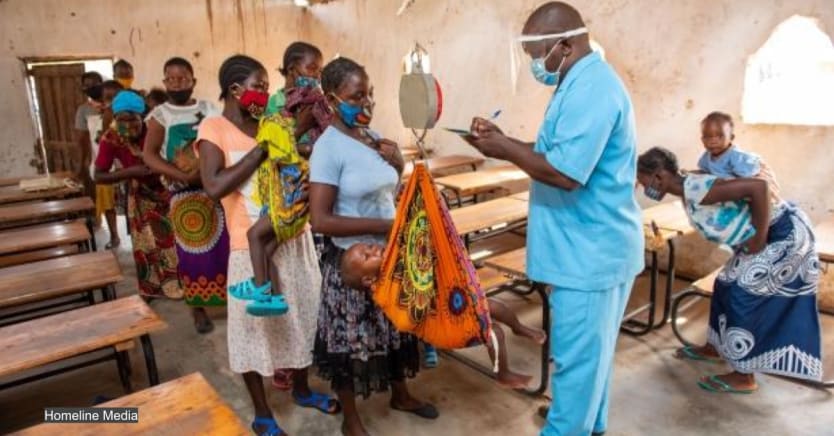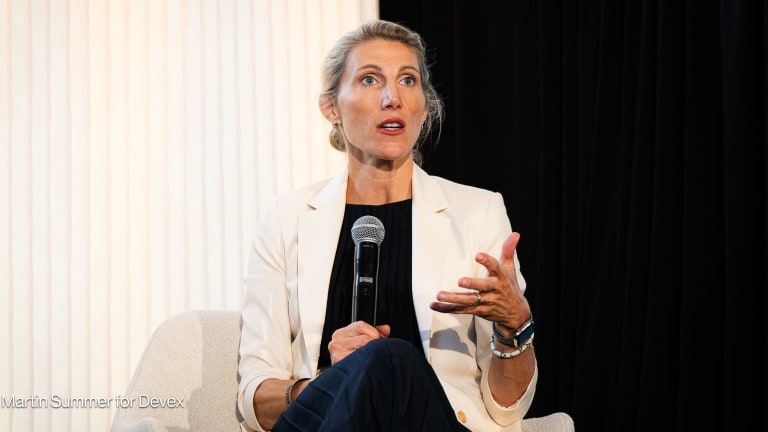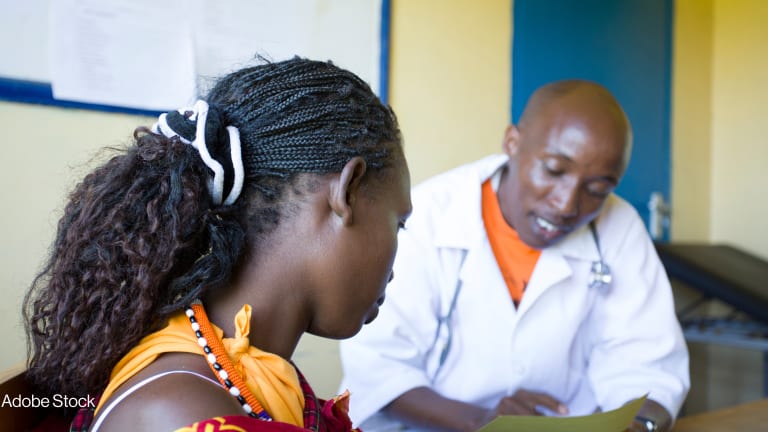
This time last year, on the heels of World Health Worker Week, support for the global health workforce had never been stronger. During the early days of the COVID-19 pandemic, applause broke out at shift changes, volunteers sewed masks in response to personal protective equipment shortages, and communities organized meal deliveries to hospitals in honor and recognition of the immeasurable sacrifices front-line health workers were making to combat the disease.
In Africa and Central and South America, lockdowns began, and health systems braced for the spread of the coronavirus. China had lifted its initial lockdown, while many other Asian countries prepared for the worst. And the World Health Organization had written and revised a COVID-19 Strategy Preparedness and Response Plan.
Now, a year later, our collective mindset has made important, productive shifts as we recognize applause and bold declarations are not enough; they must be backed by action. We’ve gone from referencing “when we go back to normal” to acknowledging that we can’t and shouldn’t revert to the status quo. The refrain “we need to build back better” has become shorthand for a deeper understanding that our health systems are imperfect. They especially fail the most underserved among us, and they desperately need improvements.
But as we progress through crisis management into containment, prevention, and recovery, we need to ensure that we keep all front-line health workers — doctors, nurses, midwives, first responders, pharmacists, and community health workers, or CHWs — at the front and center of our discussions.
Take, for example, Raphael Salanga, a community health worker in Malawi. At the onset of the pandemic, he and other CHWs lacked PPE. It wasn’t until there was a donation from the COVID-19 Action Fund for Africa, or CAF-Africa, that he received the necessary equipment.

We need to adequately support and protect front-line health workers not just because of the unique challenges they face and sacrifices they have made in response to the pandemic, but also because health workers who have dignity, respect, and the tools they need to do their jobs effectively are our best chance to tackle this pandemic and prepare for the next one.
Challenges that front-line health workers have faced include:
1. Burnout, trauma, and lack of recognition
A recent survey by the International Council of Nurses showed that nurses are facing a mental health crisis due to the stress associated with COVID-19. This has been seen in other front-line workers as well.
Olajumoke Adebayo, a midwife in Nigeria, told the Frontline Health Workers Coalition about her experience during the pandemic. “There was a lot of anxiety among midwives because we’re not prioritized for personal protective equipment,” she said. “Most of us are women and safety is a big issue. And for safety, I’m talking about water, sanitation, and hygiene to protective equipment.” This — compounded by unreliable or inadequate pay — led to health worker strikes in 84 countries by October.
2. Lack of adequate protection and support
Since the beginning of the pandemic, CHWs have been vital to maintaining primary health care in their communities while health systems have buckled under the weight of COVID-19. Yet 86% of CHWs in Africa are unsalaried and receive little or no compensation, and they are last in line for lifesaving PPE despite working on the front lines of the pandemic response.
3. Lack of resources and investment
When front-line health workers don’t have the support and resources they need to do their jobs safely and well, communities suffer, health workers suffer, and public health goals are unattainable. For example, fewer than half of CHWs in Liberia in 2018 and 2019 had zinc to stop diarrhea or amoxicillin to treat acute respiratory infection — necessary medicines for helping patients.
Investments and awareness campaigns have made important strides to help course-correct. At the beginning of 2020, Johnson & Johnson announced a $250 million commitment for the following decade to support front-line health workers through the Center for Health Worker Innovation, later adding $50 million for COVID-19 support. The center also created the #BacktheFrontline campaign to engage the public and elevate the voices of health workers around the world.
At the same time, the #CHWAdvocates campaign has advocated for and proactively supported the inclusion of CHWs in high-level health policy discussions. And the Community Health Impact Coalition, VillageReach, and a collaborative of 29 other organizations established CAF-Africa, working together with ministries of health to address the urgent unmet need of getting PPE to CHWs in sub-Saharan Africa.

These are only some examples of how organizations like ours have prioritized actions in support of health workers, but we know we need drivers across all sectors and industries. To this end, we are among the founding contributors to the Center for Health Worker Innovation’s #BackTheFrontline Action Hub, which aggregates important actions that individuals can take to make meaningful change for health workers.
Each of our partner organizations has put forth actions on the hub so that every person has the opportunity to be an advocate and drive change. Here are a few examples:
• Amplify the stories of front-line health workers in low- and middle-income countries with VillageReach. Access to quality care is fundamental and wouldn't be possible without the hard work of our front-line health workers. People can show their support for those on the front lines of the COVID-19 response in these countries and help combat misinformation by sharing accurate, reliable information.
Opinion: More equitable health systems? Empower frontline health workers
With a seat at the table, community-based frontline health workers can be leaders, innovators, and agents of change. The Johnson & Johnson Center for Health Worker Innovation explains how they can be best supported.
• Learn more about how CHWs are critical to the COVID-19 response with the Community Health Impact Coalition. CHWs have been essential in the global response to the pandemic, but they haven't always been respected in these essential roles. Visitors to the hub can share with their networks the reasons that CHWs who are fairly paid, well trained, adequately supervised, and fully equipped are vital to maintaining quality health care during, and long after, this crisis.
• Pledge to join the Frontline Health Workers Coalition, Seed Global Health, IntraHealth International, Smile Train, and The G4 Alliance in their #ActForHealthWorkers campaign.
COVID-19 has underscored what we know to be true: Health is essential, and quality care can only be delivered by a robust and well-resourced health workforce. In this International Year of Health and Care Workers, people can take action by contacting their governments and elected officials to let them know they want the COVID-19 response to include support for front-line health workers, including in low- and middle-income countries.
Workers on the front lines of care are more than heroes of a pandemic; they are essential leaders in healing our communities and reenvisioning better health systems. A collective approach is required to meaningfully address and solve the challenges health workers face. Together, we can create sweeping, systemwide change so the health workforce can thrive and bring about stronger systems that can better support health for all.










